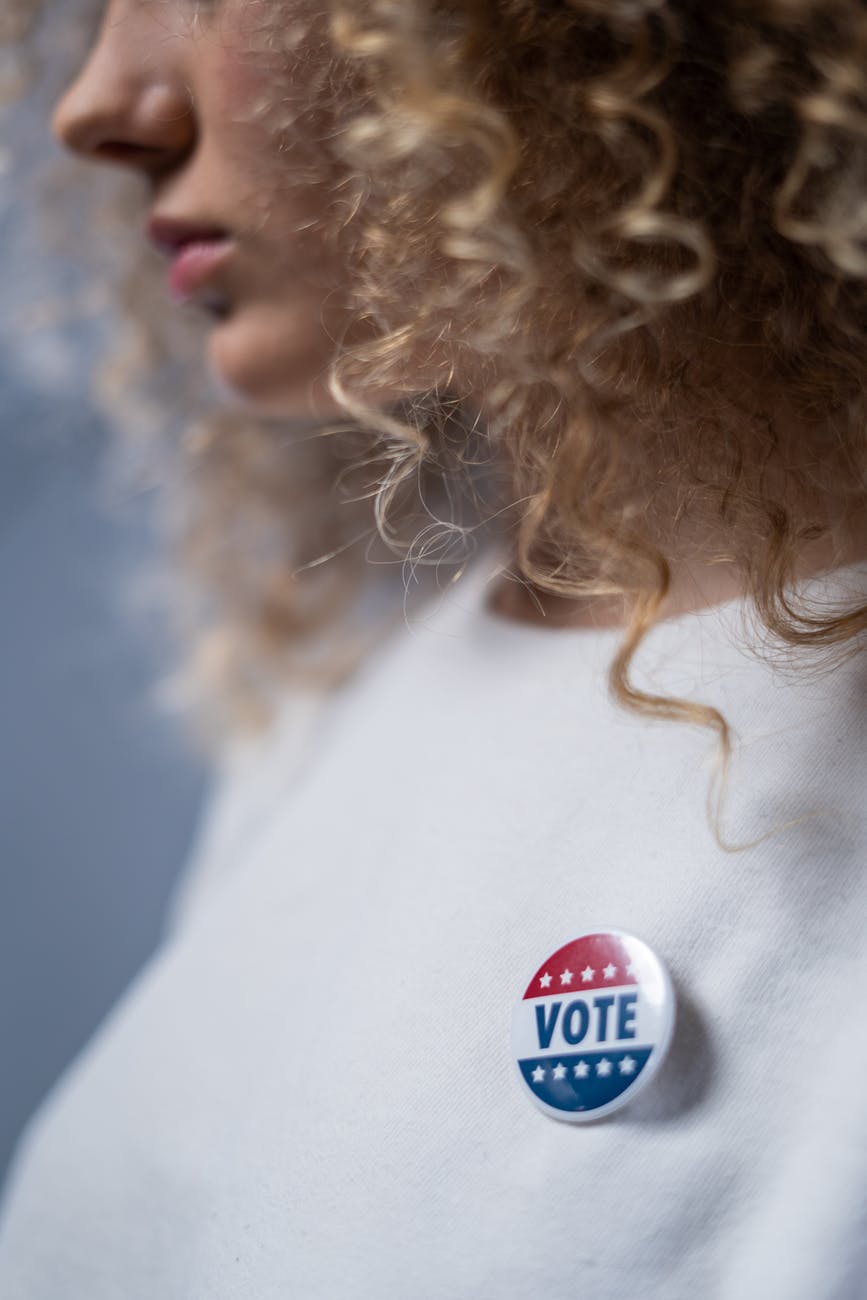
Hello, there, Dear Reader. Greetings from New Hometown, Florida, where – for the moment, anyway – it’s beginning to look like autumn. Or for what passes as “autumn” in the subtropics.
Currently, the temperature outside is 70˚F (21˚C) under mostly sunny skies. With humidity at 94% and a becalmed wind of 0 MPH (2 KM/H), the feels-like temperature is also 70˚F (21˚C). There is a “dense fog” advisory for my immediate area, though from what I see outside my window, the thickness of the fog probably varies from one part of the development to the other. Today’s forecast calls for a high of 89˚F (32˚C) and partly sunny skies; tonight’s low is expected to reach 71˚F (22˚C).
It’s hard to believe that it’s Wednesday, October 14, 2020 already, and that this year – this anno horriblis – marked by political divisiveness, economic instability, a global pandemic, and turmoil in many relationships (including my own recently-ended romance) is almost over. For me, the days are now a bland blur of sameness, sadness, and constant outrage over the current President’s boorish, unethical, and incompetent behavior in the Oval Office – and elsewhere.
I really do not, repeat, do not, understand how and why people with different political affiliations can live in the same country, share many cultural and social traits, and claim the same national heritage, yet perceive reality in extremely different ways. I mean, while many liberals – myself included – see Donald J. Trump as a corrupt, financially vulnerable, socially divisive, and mostly unlikable man, his supporters tend to see him either as:
- “The best President in my lifetime”
Or, alternatively, Trump is hailed as:
- “The BEST President EVER”
Consider this paean to the sitting (and Tweeting) President that I saw on one of my high school classmates’ Facebook profile. He didn’t write it, but he did copy/paste it to his timeline:
Get well soon Mr. President
I Iearned something about our President last night that I’m sure most people don’t know. Rudi Giuliana, the Mayor of New York when 9/11 was hit, said last night on the news that our President Trump, which wasn’t our President at the time, was at Ground Zero every day, and brought all his construction crews with him to help and find all those people that were victims of this horrible crime and to help with all the cleanup. That tells me that he is not all about himself, but he cares about us, the American people. He doesn’t have to be our President, he could be living a life of luxury, instead of fighting the MSM. I know that if I had billions, I wouldn’t do it. He is 74 years old and could live out his life in splendor, but instead, he fights the fake news and fake books written about him just because he loves us, America. President Trump, if anyone ever gets this post to you, I want to thank you from the bottom of my heart for your sacrifice for our country, and to tell you that I love having you be our president. Thank you.
TRUMP 2020

Seriously?
In the current edition of Time magazine – I have been a subscriber since October of 1983 – there is an article that explores this concept of how Trump supporters perceive reality in ways that are markedly different from their political opposites. Written by Time staff writer Charlotte Alter, Things Fall Apart (in the print edition; the online version of Alter’s story is headlined How a Road Trip Through America’s Battlegrounds Revealed a Nation Plagued by Misinformation, the article observes that Trump supporters exhibit “a persistent style of untethered reasoning” that can be best labeled as “unlogic.”
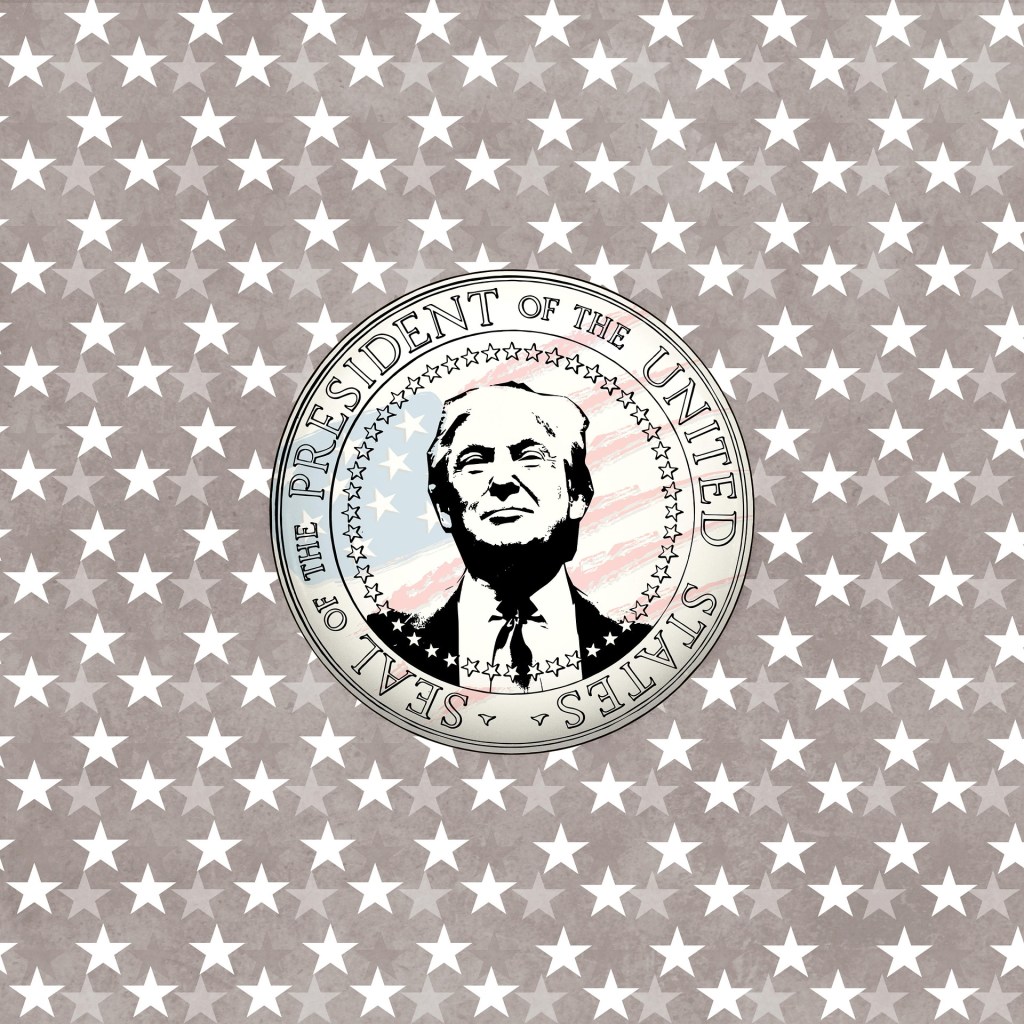
Per Alter:
At its most acute, unlogic manifested as a belief in dangerous falsehoods, from the cult of QAnon to the conviction that COVID-19 is a hoax. But the milder forms of unlogic were more pervasive: believing that most reports about the President were fabricated by lying reporters (they aren’t) or that Biden is a socialist (he isn’t) or that the coronavirus is no worse than the flu, as Trump keeps insisting (it’s far more deadly). Unlogic erupted on the left after Trump’s COVID-19 diagnosis, with liberals online speculating that Trump is faking his illness (he isn’t).
With so many voters ignoring the headlines, it became increasingly hard to tell where most Americans fall on the continuum from reason to unlogic. In the absence of agreed-upon facts, the possibility of consensus itself seemed to be disappearing, and the effect was unsettling.
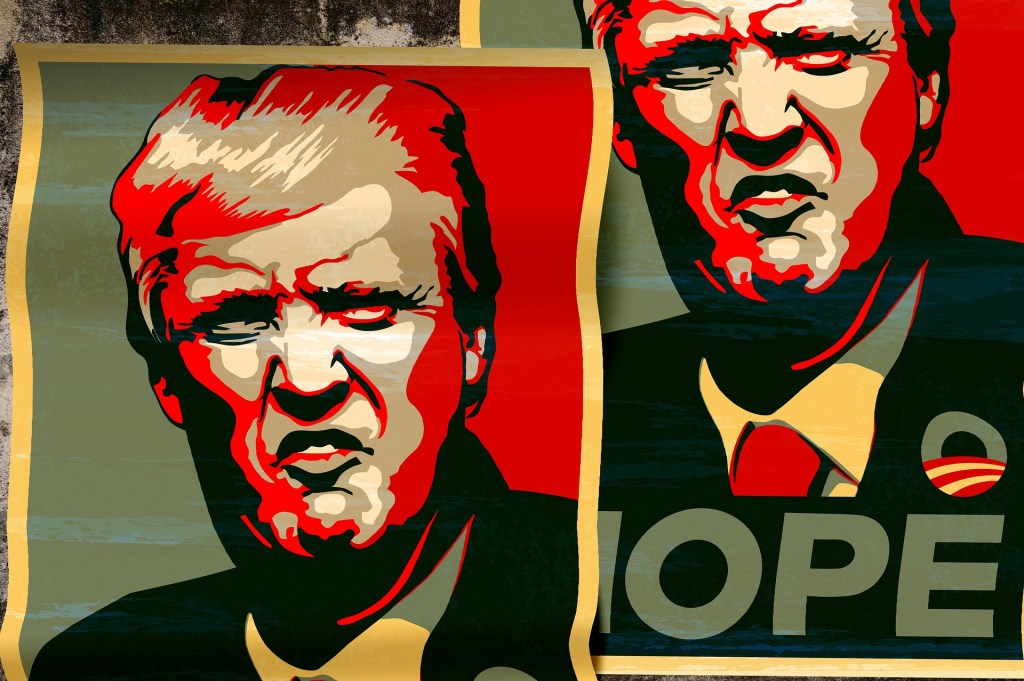
I live with a Trump supporter – several, if The Caregiver’s claims that her middle son is casting his first vote for the current President in the 2020 elections are true – and I also know many of my high school classmates (most of whom are Cuban-American) are also on the Make America Great Again bandwagon. It was my now ex-girlfriend who insisted that I watch David Muir’s interview with the recently-inaugurated Trump on ABC back in January of 2017, and it is she who calls me a “leftist who wants to bring Socialism to destroy America” when we argue over politics.
As a result, I have seen first-hand the effects of unlogic on people that I have shared a house and broken bread with for over four years. It is an unnerving and bewildering experience, as well as an unpleasant one.
Because I avoid discussing politics with The Caregiver, I have no idea if she buys into the QAnon conspiracy theories that abound on social media and beyond, but I have seen enough crazy comments about how Joe Biden is a pedophile and how “Demonrats” want to kill babies and drink their blood for dark, evil rites.
Again, I refer you to Alter’s Time article:
Over the course of three weeks, I spoke to nearly 200 people of all political persuasions. There were Biden diehards and Trump Republicans, tepid Democrats, old-fashioned conservatives, even the elusive undecided voter. I spoke to Wisconsinites in the conservative suburbs of Milwaukee and the streets of Kenosha, where the windows downtown were boarded up and spray-painted with phrases like “Love is the Answer” after nights of racial-justice protests; Michiganders in the swingy counties surrounding Detroit and in red-to-blue districts near Flint; Pennsylvanians in the suburbs around Pittsburgh and bellwether Luzerne County. I approached voters on sidewalks and in grocery stores and as they waited in line for restaurant tables. I was kicked out of Target parking lots and shopping malls. My diet consisted mostly of egg breakfasts, granola bars and dirty looks. I learned to say, “Hi there!” with an extra chirp, smiling with my voice since nobody could see my mouth behind my mask.
Much of the time, I got back into my white Ford rental with a pit in my stomach. Conspiracy theories like QAnon–the perverse delusion that Trump is the final defense against a “deep state” cabal of Democrats and Hollywood elite who traffic and rape children–kept cropping up in my conversations. Two women in Cedarburg, Wis., told me the “cabal” was running tunnels under the U.S. to traffic children so elites could torture them and drink their blood. When I checked into an airport hotel in Kalamazoo, Mich., the night manager made small talk about politicians running a pedophile ring as he directed me to the elevator.
And further on down in How a Road Trip Through America’s Battlegrounds Revealed a Nation Plagued by Misinformation, Alter describes an encounter with a Trump supporter who, as many like-minded men and women often write on Facebook, does his own “fact-digging” online:
As he returned his shopping cart after a trip to a Walmart in Sterling Heights, Mich., Michael Thomas, a 41-year-old who works in automotive-paint delivery, listed all the reasons he planned to vote for Trump again: he’s a Christian who opposes abortion and backs the Second Amendment. But also: “I believe in Q [and] Pizzagate,” he said, referring to the conspiracy theory that Democrats trafficked children out of the basement of a D.C. pizza parlor. Where does he find this information? He shrugged as he pulled out his keys. ”The Internet,” he said simply.
Americans have always been susceptible to conspiracy theories, especially in times of war or political turmoil. For decades, dark, unsettling rumors and fabrications have hovered over such events as the Pearl Harbor attack on December 7, 1941, the Kennedy-King assassinations, and – more recently – the September 11, 2001 attacks by Al-Qaeda. Such bizarre tale-telling is not an exclusive feature of one political brand or the other; Rosie O’Donnell, the comedian and talk show host, is an outspoken liberal who firmly believed that the U.S. government was behind the 9-11 attacks, so it’s not just conservatives who take stock in ridiculous confabulations.
In the past, though, before social media was even a “thing,” most Americans tended to avoid being caught in a wave of unlogic and seemed, to me at least, to be on the same page when it came to the perception of reality. (Then again, back then there was not as much distrust of traditional print and broadcast media, although there were many individuals, including Richard M. Nixon, Roger Ailes, Rupert Murdoch, and like-minded folks, who were trying their best to create an alternate reality for social and fiscal conservatives and destroy the credibility of a mainstream media they perceived as being hostile to their world view and socio-economic goals.)
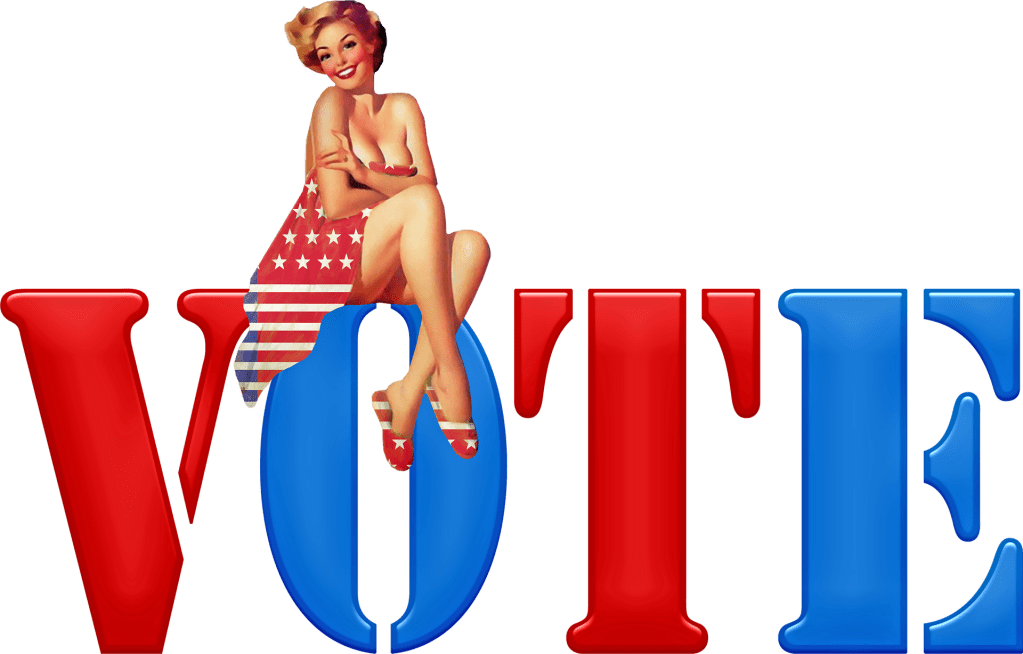
In 2020, though, it seems as though Americans tend to look at the same contemporary events and personalities through different prisms.

Take the coronavirus pandemic, for example. While most Americans who identify as progressive, liberal, or Democrats tend to believe that wearing masks in public places, practicing social distancing, and prudent shutdowns of businesses such as sit-down-to-eat restaurants, bars, and mass-crowd events are necessary to prevent the spread of COVID-19, Trump supporters tend to interpret these measures as either infringements on individual rights or signs that “Dems simply want us to live in fear and hurt OUR President’s chances for re-election.”
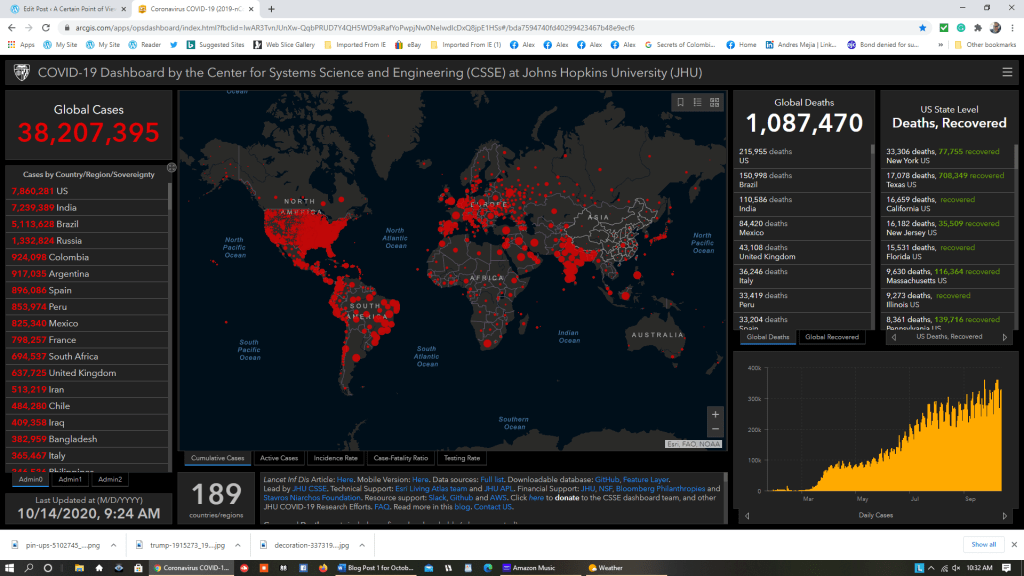
And when it comes to the facts-and-figures side of the pandemic, Trump supporters are more likely to claim that the number of deaths caused by COVID-19 are either “cooked” (I have seen so many comments on Facebook along the lines of “Hospitals are paid more money if they list every death as being COVID-related” that it no longer fazes me when I run into one of them) or not relevant (“People die of the flu every year and we don’t shut down the country because of it.”)
I studied journalism in high school and college. I know that reporters do their best to report facts, especially when news events affect large segments of the situations, and that many mainstream media outlets do their best to remain politically neutral when it comes to reporting. (Opinions and editorials, which were part of my journalism training as well as straight news reporting, are clearly set apart in their own section in a newspaper and marked as such.)
I try to be as informed as possible in order to make good decisions. This is as true when I go shopping online on Amazon (I hardly ever buy anything without reading reviews first) as it is during an election. And when it comes to a guy like Donald J. Trump, his past history revealed the kind of President he would be when he was nominated as the Republican Party’s candidate four years ago.
I already knew, for instance, that he is a lecherous womanizer.
That he is a racist, or at least harbors some white supremacist sentiments.
That he is a publicity-hungry egotist.
That he is dishonest.
That he is divisive.
And yet, many Trump supporters seem to live in their own world, blissfully brushing aside any and all inconvenient truths they encounter by the wayside of the MAGA train’s tracks.
As Alter writes in her incisive look as the 2020 Misinformation Election:
All of these suspicions are like swirling clouds in a monster hurricane, tearing through the possibility of consensus in American democracy, chewing up the guardrails, ripping out the precedents; a hurricane going nowhere, with nothing at its center.
Living in 2020 America, with a large segment of the electorate believing in mistruths and guided by unlogic, is quite frightening and disorienting.

Comments
7 responses to “Election 2020: Fear, Divisiveness, and Unlogic in the Time of COVID-19”
Great piece. It’ll be interesting to see reactions of your caretaker and classmates if Biden wins.
LikeLiked by 1 person
My classmates will, more than likely, keep saying what they’ve been saying, i,e., that Biden has dementia and is a pedophile, that Trump was never allowed by “the deep state” to govern, and that the U.S. will become like Venezuela.
LikeLiked by 1 person
You really need to get out of that environment for your mental health. I don’t have any more suggestions beyond what I’ve already given you, unfortunately.
LikeLike
Given that the Liar-in-Chief’s default setting is, well, LYING, I question Alter’s opinion of the left’s questioning of the COVID diagnosis as “unlogic”. I don’t think it’s illogical to assume that someone is lying when their history is to lie all of the time. A more fitting descriptive would be, “skeptical”.
LikeLiked by 1 person
When I heard that Donald Trump was diagnosed with a COVID-19 infection, I had a momentary reaction of “Hell, no. He does NOT have ‘rona.” I mean, he announced it on Twitter, a platform that 99.9999994804709825470645712695345% of the time he uses to pass on misinformation and insults. It took me about six hours, more or less, to conclude that, for once, Trump was not lying.
LikeLike
It took me several days. And I still don’t believe much of what he or his administration has said about it.
LikeLiked by 1 person
That’s why my mother always said, “Honesty is better than dishonesty; if you tell too many lies, you’ll lose your credibility.”
I miss my mom, but I’m sure glad she did not live to see Donald Trump’s election four years ago.
LikeLike